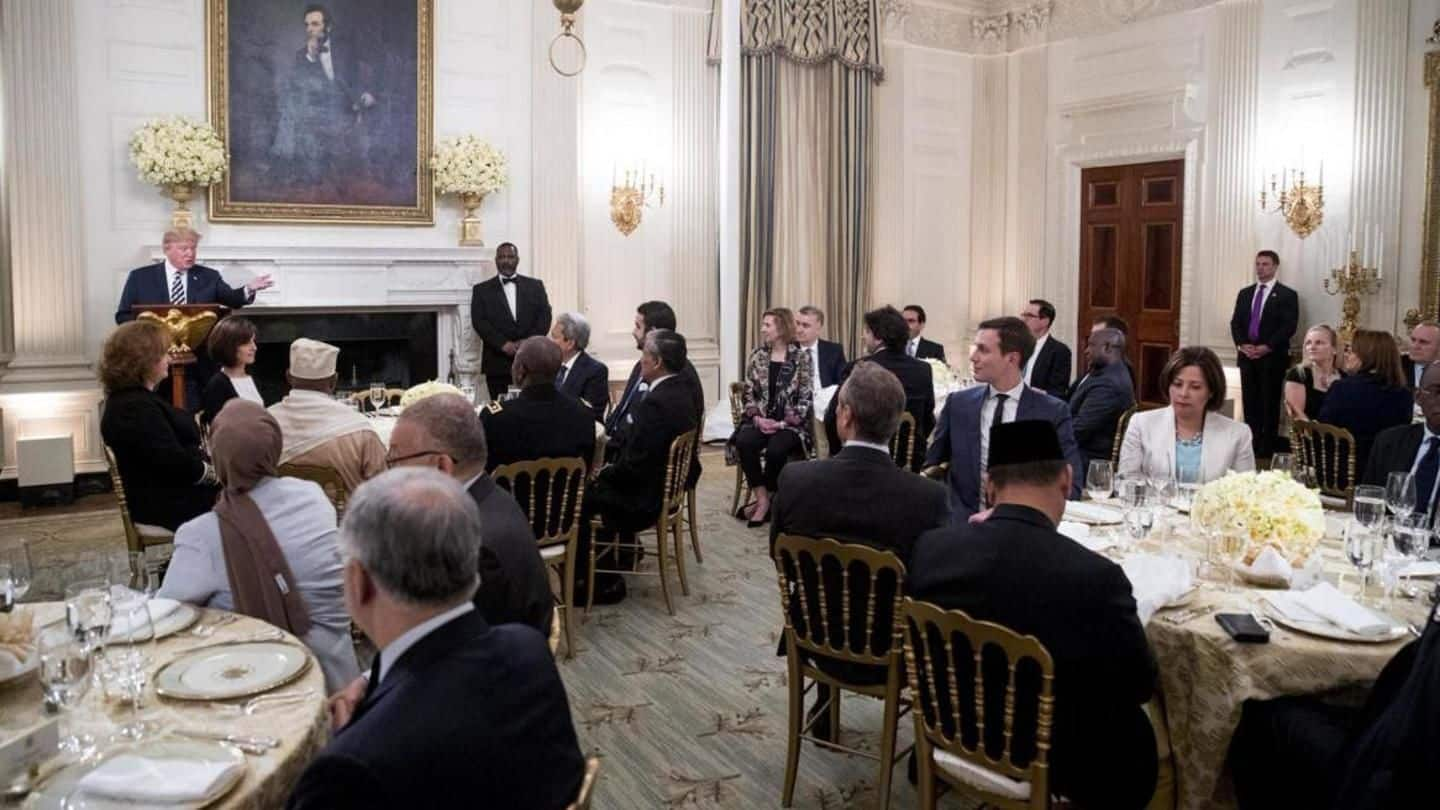
Trump hosts first Iftar dinner, seeks co-operation from Muslim world
What's the story
US President Donald Trump hosted his first Iftar dinner at White House last evening during which he sought cooperation from the Muslim world to achieve a future of security and prosperity for all. Trump's move came as a surprise to many as he didn't host Iftar last year, breaking with decades of precedent that formally began with Bill Clinton in the 1990s. Here's more.
Anti-Muslim
Trump has frequently engaged in anti-Muslim rhetoric
Trump, who has frequently engaged in anti-Muslim rhetoric, also wished Muslims, "Ramadan Mubarak." Trump said that he was proud to make his first foreign trip as President to the heart of the Muslim world, where he addressed an assembly of more than 50 leaders of Muslim-majority countries. He further said the partnership and solidarity that was established between them has only deepened with time.
Names
Muslim countries' diplomats invited by Trump for Iftar dinner
Trump invited Saudi Ambassador Prince Khalid Ben Salman, Jordanian envoy Dina Kawar, and Indonesian Ambassadors to the Iftar dinner. They all were seated with Trump on the same head table. Envoys from several Muslim countries including the UAE, Egypt, Tunisia, Qatar, Bahrain, Morocco, Algeria, Libya, Kuwait, Gambia, Ethiopia, Iraq, and Bosnia were invited. "We're greatly honored by your presence," the US President said.
Ramadan grace
Trump asks Muslim countries to embody grace, goodwill of Ramadan
"Tonight, as we enjoy a magnificent dinner at the White House, let us strive to embody the grace and goodwill that mark the Ramadan season," Trump said. "Let us pray for peace and justice, and let us resolve that these values will guide us as we work together to build a bright and prosperous future that does honor and glory to God," he added.
Protest
Muslim groups protested against Trump's Iftar; hosted own outside WH
Meanwhile, some members of the Muslim groups held their own Iftar outside the White House in protest against the alleged anti-Muslim rhetoric of the Trump administration. Several Muslim civil rights groups pushed back, organizing a "NOT Trump's Iftar" protest at a park across from White House. The groups said Trump's heated rhetoric has contributed to an increase in bullying and discrimination against Muslim Americans.
Ban
Trump imposed travel ban on Muslim countries
Trump's Iftar was completely opposite from the inflammatory rhetoric Trump used during his campaign, when he called for a "complete and total shutdown" of Muslims entering the country, compared Syrian refugees fleeing civil war to a deadly snake. He has also imposed a travel ban, targeting travelers from five countries with overwhelmingly Muslim populations - Iran, Libya, Somalia, Syria, and Yemen.